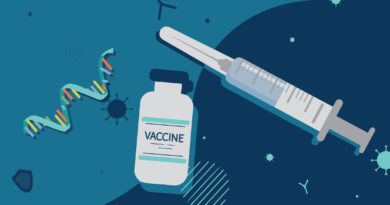New project aims to inform public of vaccine research progress via social media

Scientists working on COVID-19 vaccines around the globe have come together as part of a campaign to communicate their research to the public.
The project, called Team Halo, aims to directly inform citizens using social media platforms such as TikTok.
The collaboration was set up by the United Nations, the Vaccine Confidence Project and Gavi, the Vaccine Alliance, and features scientists from the UK, US, South Africa, India, and Brazil.
Those involved have committed to documenting the vaccine development process and answering any questions through social media comments.
Team Halo hopes to gain the public’s approval, as well as combat the spread of COVID-19 misinformation.
“We generally categorise people into being either Anti-Vax or Pro-Vax, but what I have really encountered during this is that there’s much more of a grey area in between,” said Dr Anna Blakney, a Bio-engineer working on COVID-19 vaccine development.
The #TeamHalo hashtag has gone viral on Tiktok, with worldwide users jumping to ask questions following recent COVID-19 vaccine developments.
On Monday, BioNTech and Pfizer announced that their vaccine could be 90% effective, based on early and incomplete test results.
It’s hoped the vaccine will be ready to distribute within weeks once final clinical tests are completed and regulatory approval gained.
“I think it really just builds trust because people are able to ask directly ‘Is this a rushed vaccine? Is it safe?’,” Blakney said.
“I am there in the comments responding to them directly so it’s not filtered through a third party.”
“They are able to get their questions answered directly by a scientist and so opening that line of communication is really great.”
In the hope of slowing the spread of misinformation online, Team Halo scientists hope the information on their laboratory research work on these platforms will also ease online vaccine hesitancy.
*** This article has been archived for your research. The original version from Euronews can be found here ***


